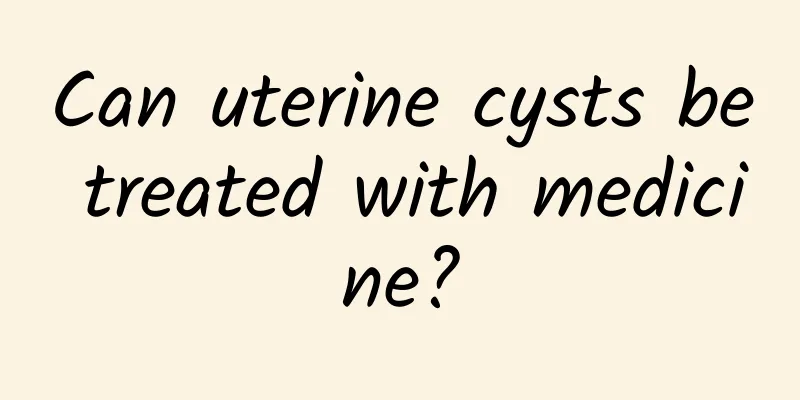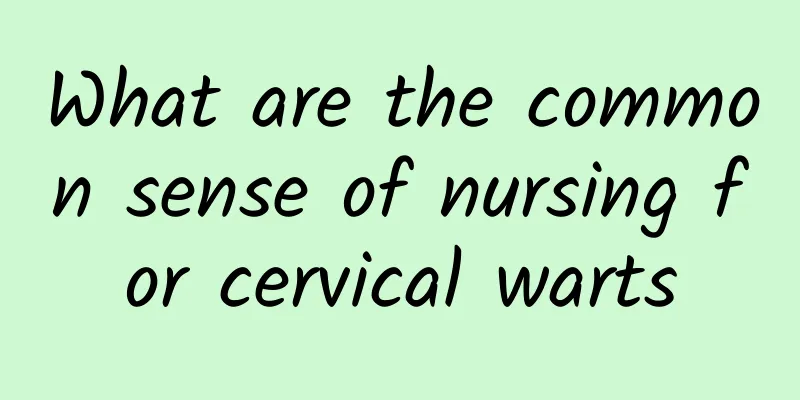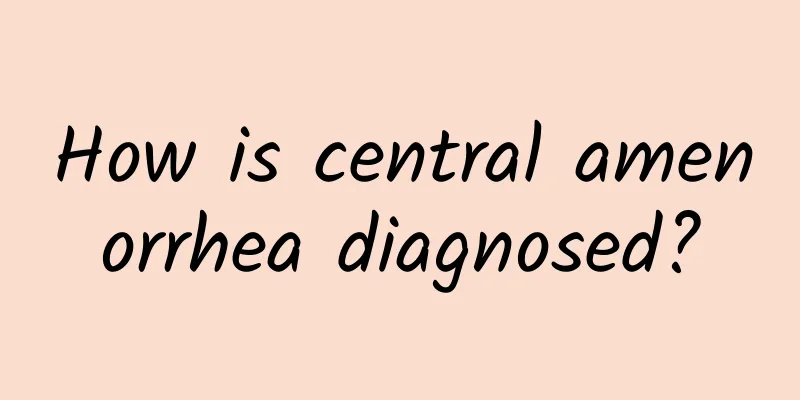Can uterine cysts be treated with medicine?

|
Uterine cysts can be treated with medication, but whether it is suitable for use needs to be evaluated based on the type of cyst and the severity of the disease. It should also be combined with surgical treatment and lifestyle adjustments to ensure the best treatment effect. 1 Types and causes of uterine cysts Uterine cysts are usually divided into two categories: functional cysts and pathological cysts. Functional cysts are more common in ovarian cysts or corpus luteum cysts, which are mainly related to fluctuations in hormone levels in the body and may disappear naturally; pathological cysts are often related to endometriosis, adenomyosis, etc., and usually require intervention and treatment. Other causes include genetic factors, chronic inflammation, endometrial lesions, etc. 2 Scope and methods of drug treatment Drug treatment is usually suitable for patients with mild symptoms or functional cysts. Its purpose is to control the disease by inhibiting hormone secretion, reducing inflammation and relieving symptoms. Common drugs include: Oral short-acting contraceptives: regulate hormone levels, help shrink cysts, and can be used for functional cysts. Gonadotropin-releasing hormone agonist GnRH agonist: inhibits ovarian function, reduces cyst growth, and is often used for cysts caused by endometriosis. Nonsteroidal anti-inflammatory drugs (NSAIDs): used to relieve pain and discomfort. They cannot directly eliminate cysts, but they help improve quality of life. 3Other treatment methods and precautions Surgery may be necessary for pathological cysts or for cases that do not respond to medication. For example: Laparoscopic surgery: Use minimally invasive techniques to directly remove the cyst and restore normal tissue structure. Laparotomy: Suitable for patients with larger cysts or those with the possibility of malignant transformation. Removal of the uterus or ovaries is reserved for special circumstances: usually for patients with recurrent or malignant disease. In addition to medication and surgery, lifestyle management is also important, such as maintaining good eating habits, exercising properly to enhance immunity, and regular physical examinations to monitor the condition. Drug treatment can be an effective option for uterine cysts, but it depends on the type of cyst and the severity of the condition. If you experience persistent pain, irregular bleeding, or rapid growth of the cyst, you should go to the hospital for examination and evaluation as soon as possible to choose the most appropriate treatment plan to protect your health. |
<<: Will the cervix still enlarge after menopause?
>>: Typical symptoms of threatened abortion Amenorrhea
Recommend
What tests are needed for the symptoms of pelvic inflammatory disease
A group of infectious diseases of the female uppe...
Women should pay attention to the causes of cervical hypertrophy
In recent years, the incidence of cervical hypert...
Premonitory symptoms of vulvar leukoplakia
The precursor symptoms of vulvar leukoplakia main...
More than 30% of adults face metabolic syndrome health crisis! How to overcome metabolic syndrome
According to the National Health Administration&#...
Are cervical warts life-threatening?
As the incidence of cervical warts gradually incr...
How much hcg will rupture in ectopic pregnancy
The rupture of ectopic pregnancy has no direct re...
Three advantages of laparoscopic surgery for ovarian cysts
With the advancement of medical technology, the s...
3 tea therapies suitable for amenorrhea patients
Women who have not had menstruation over the age ...
Fat kids, sitting for long periods of time is the culprit! 5 Tips for Controlling Diet
During the summer vacation, the number of obese c...
Menstrual changes are a sign of adnexitis
Becoming a patient with adnexitis means that your...
What are the symptoms of adnexitis?
What are the symptoms of adnexitis? Adnexitis is ...
What are the dangers of endometrial polyps
Endometrial polyps may cause problems such as irr...
Experts explain the high-risk groups for candidal vaginitis
As a gynecological disease that seriously harms w...
Is abnormal bleeding a common symptom of ectopic pregnancy?
Ectopic pregnancy is one of the most common gynec...
What should I do if my menstrual period has not come for more than a month?
What should I do if my menstrual period has not c...









